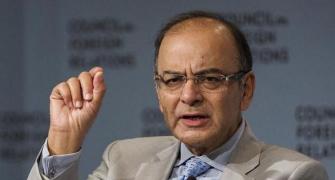Facebook , Google, Yahoo and Twitter will be liable to be taxed in India for earnings above Rs 1 lakh from local advertisers.

The income tax department on Monday released rules for equalisation levy — a tax on online advertisements that would come into effect from June 1.
Announced in the Budget for 2016-17, the six per cent levy — dubbed Google tax — is aimed at foreign multinational digital companies without a permanent establishment in India.
This would make companies such as Facebook , Google, Yahoo and Twitter liable to be taxed in India for earnings above Rs 1 lakh from local advertisers.
According to the rules notified by the income tax department, the assessees concerned need to deduct the levy and credit the amount to the central government.
They can do it by remitting it into the Reserve Bank of India, any branch of the State Bank of India or of any authorised bank.
“The equalisation levy made various players sit up and take note, especially since this is India’s first step to tax the digital economy. Now with rules in place, people need to start taking action, since the statement of specified services procured starting June 1, 2016 has to be reported in the statement to be furnished by June 30, 2017,” said Rakesh Nangia, managing partner, Nangia and Co.
The rules issued by the Central Board of Direct Taxes (CBDT) provide clarity on how an assessee can appeal against the order of the assessing officer.
“By keeping the filing of statement and even the filing of appeal electronic, the CBDT has continued its motion to make India’s tax administration paperless,” Nangia added.
The Budget had proposed to impose levy on online advertisements, provision for digital advertising space or any other facility or service for the purpose of online advertisements.
The levy could potentially drive up costs for advertisers in the country, with the digital companies expected to pass on the tax cost.
While Organisation for Economic Co-operation and Development (OECD) member countries had proposed indirect taxes such as value added tax and goods and services tax, India has imposed it as direct tax.
The government might consider widening the scope of taxing digital transactions to include online gaming, downloading of songs, emails and blogs, and online sale of goods and services, if recommendations by a high-level panel are accepted.
A committee set up by CBDT to examine taxation of e-commerce had recommended an equalisation levy of six-to-eight per cent on 13 broad ‘specified services’ with a broader objective of curbing tax avoidance by multinationals based on the OECD’s Base Erosion and Profit Shifting guidelines.
The panel had submitted the report in February.
The committee’s recommendations include levy on advertising on radio and television, designing, hosting or maintenance of websites, digital space for website, e-mails, blogs, facility for online sale of goods or services or collecting online payments.
Besides, it had recommended the levy for use or right to use or download online music, online movies, online games and online software applications accessed or downloaded through internet or telecommunication networks.










